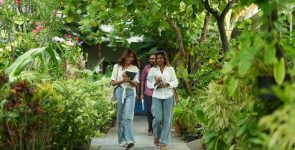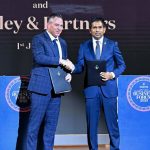In the picturesque archipelago of the Maldives, known for its stunning resorts and crystal-clear waters, the corporate work-life landscape presents a unique blend of traditional and modern practices. The nation’s economic reliance on tourism significantly influences its work patterns and environments, with the resort industry playing an important role.
The Maldives’ embrace of remote working, accelerated by the pandemic, has introduced a shift in its work culture. Studies indicate that remote employees often exhibit heightened productivity due to fewer distractions, the comfort of personal workspaces, and the absence of daily commutes. This shift has not only benefitted the employees in terms of work-life balance but also employers in ensuring business continuity during unforeseen circumstances. The flexibility offered by remote work has been a strong allure for potential candidates, particularly working mothers seeking a harmonious blend of professional and personal responsibilities.
However, the dynamics of the resort industry in the Maldives present a contrasting picture. Employees in this sector often work six days a week, a schedule that demands high commitment and offers unique challenges. Despite these demanding schedules, resort employees enjoy a close-knit community atmosphere and engage in diverse activities. The downside of this arrangement is limited personal space and strict lifestyle regulations, reflecting a distinct work-life balance geared towards the tourism sector.
The tourism sector in the Maldives, a key driver of the economy, has shown remarkable resilience post-pandemic. Adapting to new remote work possibilities and changing travel behaviours, the sector has successfully attracted new markets and embraced digital technology for recovery. This adaptability has been crucial in the face of the pandemic, with the industry showing potential for fast growth amidst the new normal.
Looking to the future, the Maldivian job market is evolving with a focus on filling skill gaps and preparing the workforce for upcoming demands. This includes balancing formal education with the development of practical experiences and soft skills to match future job requirements. The Maldivian government and educational institutions are working to bridge gaps in various fields, particularly in areas beyond traditional sectors like tourism.
In the context of global trends towards shorter work weeks, the Maldives faces unique challenges and opportunities due to its economic structure. While shorter work weeks have been linked to improved work-life balance and productivity globally, the Maldivian economy and cultural norms may require a more nuanced approach. The unique cultural and economic dynamics of the Maldives influence its work-life practices, and while global trends lean towards shorter workweeks for productivity and well-being, adapting these to the Maldivian context remains a complex task.
The key takeaway for the Maldives in adapting to these global workweek trends lies in enhancing work-life balance and embracing remote work where feasible. This could lead to significant benefits for both employers and employees, fostering a more flexible, productive, and satisfying work environment in the idyllic setting of the Maldives.




















